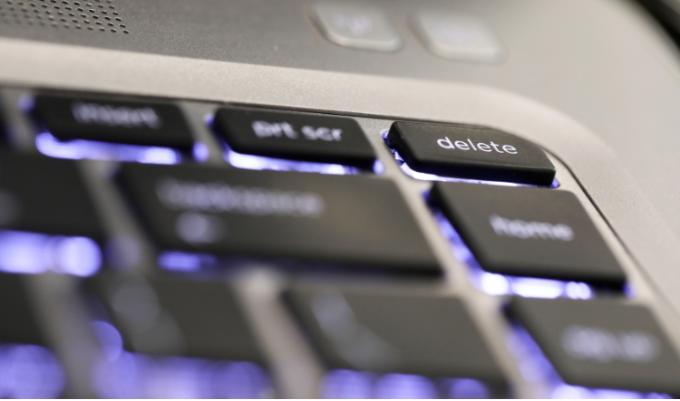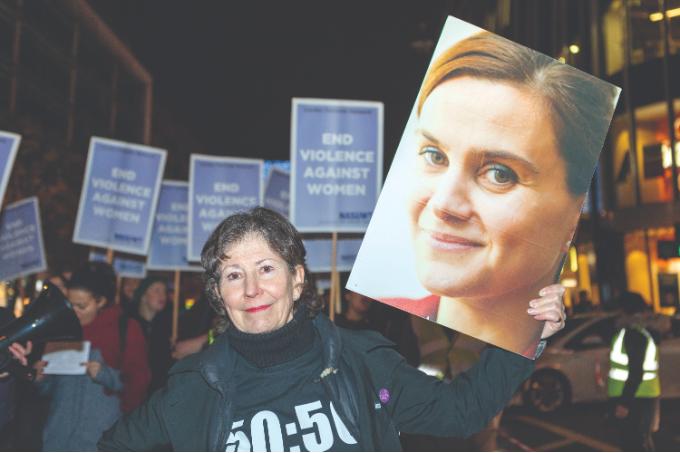Sexist insults, abuse, death threats: expect all this and more as a female MP
A third of women in the House of Commons have considered quitting due to abuse | Alamy
10 min read
Many women in Westminster endure a culture of intimidation and harassment as part of the job. Is this the price they must pay to represent their community? Radhika Sanghani reports
When Siobhan Baillie announced her pregnancy three months after becoming an MP, she was shocked by the response. “I received a whole range of strange messages and some downright nasty ones,” she says. ‘Some people in Stroud were concerned about how they’d be represented, as having a female MP was a novel situation for them. The one I’ll always remember is a gentleman on Facebook saying ‘I think you’ve been really irresponsible with your timing.’”
Baillie went on to give birth to her daughter in the middle of lockdown, and the abuse worsened. “Unbeknown to me, my office was getting nasty emails. People said I should be forced out of my hospital bed, should answer emails, and couldn’t represent the area. I saw a lot of the abuse on my social media. It was so bad I had to take it off my phone. After a two-day labour, I was not mentally able to process it or respond properly. It was just nasty.”
This is just one example of a woman in Parliament receiving unacceptable online abuse. In 2019, analysis from Susan Watson of the University of York found the UK’s women MPs were collectively sent more than 5,000 abusive tweets – an overwhelming majority of which were explicitly misogynistic – over an 11-day period. A report from the University of Sheffield found abuse directed at MPs increased from the 2015 to 2019 general elections, with some MPs, including women and those of colour, particularly targeted.
The same study found a third of women MPs have considered quitting due to the online or verbal abuse they have received, something that was seen at the 2019 general election, when MPs such as Heidi Allen stood down. Allen, a Remain campaigner, had received death threats related to her stance on Brexit from a man who was later jailed for 42 weeks.
“Sadly, it’s almost part of the job description of being an MP,” says Caroline Dinenage, MP for Gosport and minister for digital and culture. “It’s a very serious problem and not one that is subsiding. We have seen a worrying rise in the amount of online abuse, harassment and intimidation directed at those in public life. The low-level abuse is what prevents me, like many others, from sharing too much about our lives and experiences online. More importantly, it can deter future candidates from standing for office.”
Her department supported research by the Universtiy of Sheffield into online abuse during the Covid-19 lockdown, and found that while overall abuse decreased slightly, some individuals – particularly those prominent or well known among the public – still received high volumes of abuse, while misinformation and racist tweets being sent to MPs were more prevalent.
One woman who has consistently received horrific attacks ever since she began her career as an MP in 1987 is Diane Abbott. Amnesty found almost half of abusive tweets targeted at women MPs in the run up to the 2017 general election were sent to Abbott.
“If you’d told me before I got to Parliament that I’d read the n-word so much, I wouldn’t have believed you” – Bell Ribeiro-Addy
Bell Ribeiro-Addy, MP for Streatham, started her career working for Abbott’s office in 2010, until she became an MP in 2019. “I’ve received some abuse myself now,” she says. “I’ve got my own trolls. But I watched Diane receive abuse for almost a decade. She’d get death threats; there was one guy who’d send monkey cards to the office with lots of abuse inside. One Christmas, somebody put together an email address that looked like Diane’s and sent a photo of her head superimposed on to a naked Black woman’s body and sent it to all MPs and beyond. It was horrible.
“The most threatening things were terrible. Someone called the office once and just shouted the n-word repeatedly. We’ve had emails with rows of swastikas sent over. If you’d told me before I got to Parliament that I’d read the n-word so much, I wouldn’t have believed you. I knew racism existed but parliament and politics is meant to be civilised.”
As Abbott became more senior, the abuse increased. “It probably reached its peak when Diane was put in the shadow cabinet,” explains Ribeiro-Addy. “It was almost ‘how dare they put this Black woman in a senior position?’ When she was shadow home secretary, it exploded. It took a long time before she said anything about it.”
Abbott only reported the abuse after the murder of Jo Cox, during a week when her team fielded almost non-stop abusive phone calls. “Myself and her head of press, another woman of colour, got quite emotional and said, you need to report this. She hadn’t wanted to feel like a victim, but she did say something. Unfortunately it didn’t stop the abuse. After speaking in a parliamentary debate about it, people thought it was a reason to send more abuse. But people appreciated her telling her story.”

Even though the abuse was directed at Abbott, Ribeiro-Addy and other members of staff were also affected by it. Tulip Siddiq, MP for Hampstead and Kilburn, who regularly receives abuse focused on her gender and race, believes that the impact on staff is underestimated and overlooked.
“I’m thick-skinned and I have to take the good with the bad in this job, but I feel really sorry for my staff. They’re quite young. They open the emails and letters, and can get quite shaken up. They didn’t sign up for the abuse. Dealing with it day in, day out is a lot and you shouldn’t have to put up with that when you’re barely 20 and full of ambition and hope. Some people who have worked for me in the past have said this job has affected their mental health.”
She worries that it will put off future generations of girls from entering politics, and feels “caught between a rock and a hard place” when schoolgirls ask her about the reality of her job. Another real issue is that the abuse can prevent young women in politics from putting themselves forward as MPs.
It’s something Ribeiro-Addy thought about for many years before eventually deciding the benefits were worth the abuse, but many of her colleagues decided otherwise. “There have been great young women who came through [Abbott’s] office with political aspirations. The most heartbreaking thing was when one of them turned to me in the 2017 election and said, ‘it’s not worth it’. No young Black woman, or any woman, should feel they can’t do this job.”
While women MPs tend to receive constant low-level abuse, it can also be targeted to specific incidents such as speaking out about ‘women’s issues’ like maternity leave, as Baillie experienced, or for doing things their male peers have also done without facing as much abuse. “I had an unprecedented level of trolling when I criticised Donald Trump,” says Siddiq. “There was something about a fairly young woman attacking a male billionaire politician that irked people.
“I had comments from ‘shut up you stupid little girl’ to ‘go back to your own country’. Male MPs certainly weren’t receiving this. Jack Dromey and I pretty much said the same things, and I’m almost certain he didn’t receive the amount of abuse I did.”
Ribeiro-Addy believes the same sexism and misogyny was at play when Abbott “messed up a figure in the 2017 election and was vilified for something a number of male MPs had also done during the same election”. It’s also something that was seen in 2015, when Harriet Harman and a group of female MPs took a pink bus out on the campaign trail.
“I think there is a real problem in both the media world and political world of people putting forward women to speak on what they conceive to be women’s issues,” says Siddiq, who is often approached by the media to comment on maternity rights and terrorism. “The party falls into that trap too, of not appointing a woman in the defence role, which perpetuates the myth about women speaking for women’s issues. I haven’t had the party put me forward to receive the brunt of the abuse, but I can believe it happens.”
The majority of the abuse Siddiq receives is linked to her having children as an MP. “I get a lot of abuse from women as well saying, ‘you can’t be a politician and a mother. You have to choose.’”
“I started reporting death threats after what happened with Jo [Cox]” – Tulip Siddiq MP
Baillie is now receiving the same abuse, and thinks it will only end when more male MPs take up flexible paternity leave and speak up about issues like maternity leave.
“You expect it for some things, but I didn’t expect it for having a baby, because [it was] 2020,” she says.
“I like a challenge but if it tips into abuse or personal comments, it needs to be stamped out. I’ve now stopped looking at my social media, which is really sad. Women are going to stop interacting online, because what’s the point when you get lambasted? Death threats are one thing, but there’s also a lot of low-level nastiness and snide comments that can be damaging for people, particularly if you’ve just had a baby.”
While she has found parliamentary security services to be supportive, she believes that social media platforms need to do more to counter abuse – something many women MPs agree with. “I started reporting death threats after what happened with Jo [Cox],” says Siddiq. “The police are OK, if slow, but I wouldn’t say I have much faith in that process with social media platforms. When someone made a fake Facebook account of me, it took them two weeks to even reply to me.”
Under new government laws, all companies will need to take swift and effective action against criminal online abuse. Dinenage, whose department has sponsored a review of harmful online communications considering whether current law needs updating, explains: “It will be easier to report abuse, and users should expect to receive an appropriate response from the platform. Major platforms will also need to address legal but harmful content for adults, which will include some forms of online abuse.”
Ribeiro-Addy and a number of other MPs are also calling for social media platforms to stop total anonymity for users. “I accept anonymity online,” she says. “But I believe in the backend there should be some way to contact you. Each company has privacy settings, but once you break the law, you should lose the right for your details to be private and you should face the consequences for breaking the law.
“Abuse online is just deprioritised and unfortunately becomes something no one wants to do anything about. But how far does it have to go? Does it have to go to Jo Cox? It’s not right people are abused in this way and social media provides a platform for people to do just that with no consequences.”
